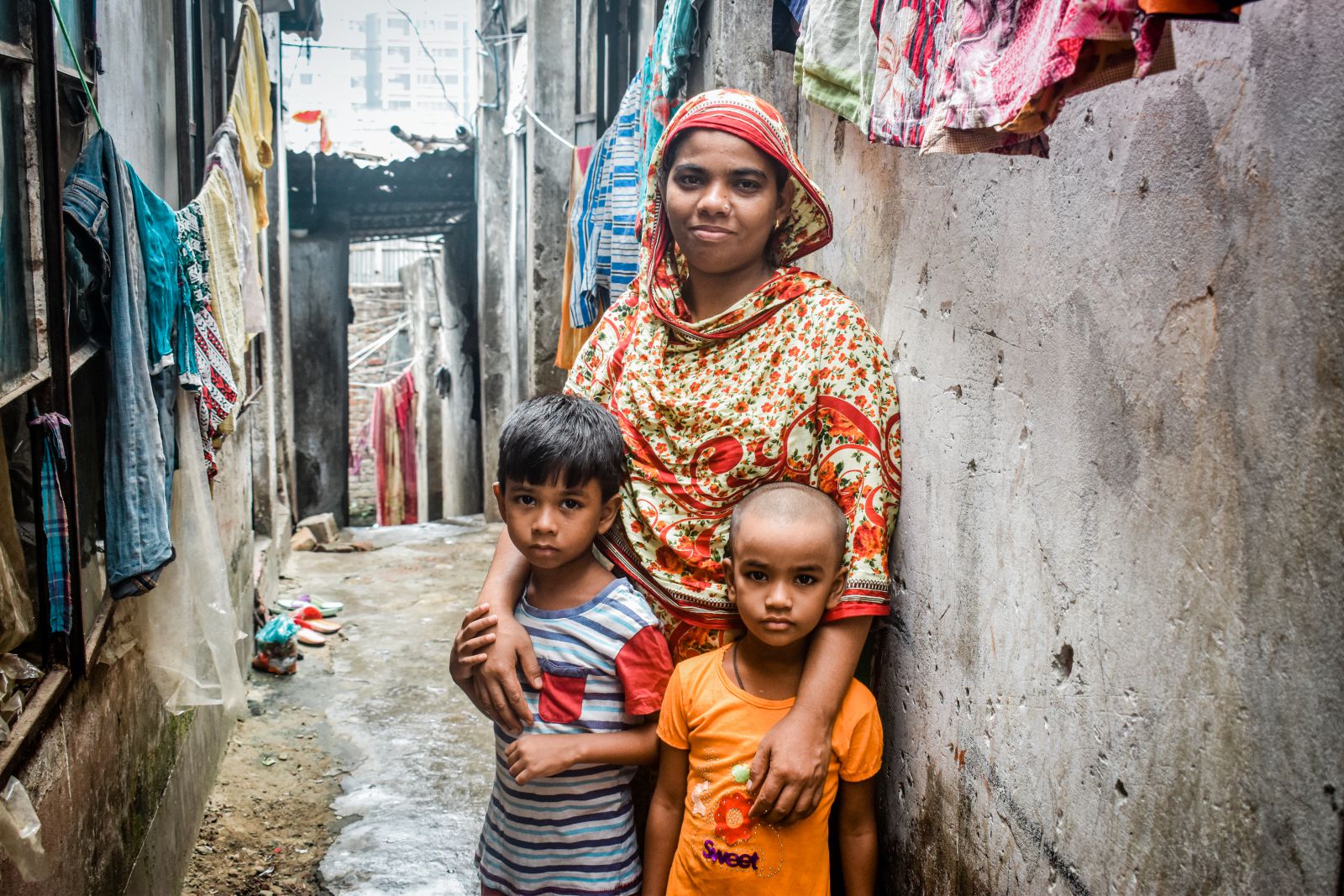What we do for children
The centre helps a total of 121 children, 80 of whom start and successfully complete their primary education. For another 41 graduates of Chalantika, the project covers the cost of tuition fees and exams for further studies.
The children do not just come to the centre to be educated. They also receive nutritious food, health care and participate in activities that contribute to their personal development.
Teaching - tutoring children
Children in Bangladesh attend regular public schools, but due to the overburdened nature of the Bangladeshi education system, they still need after-school tutoring to successfully complete their primary education. Families in the slums cannot afford it financially, so we offer it free of charge to the children at the centre. There are two blocks of classes every day. The first in the morning for children from preschool to second grade, the second in the afternoon for their older classmates up to fifth grade.
And what is taught here? Bengali, maths, English, art or science. The subject matter covered is based on the school curriculum - they are tutored on what they are currently discussing in school.
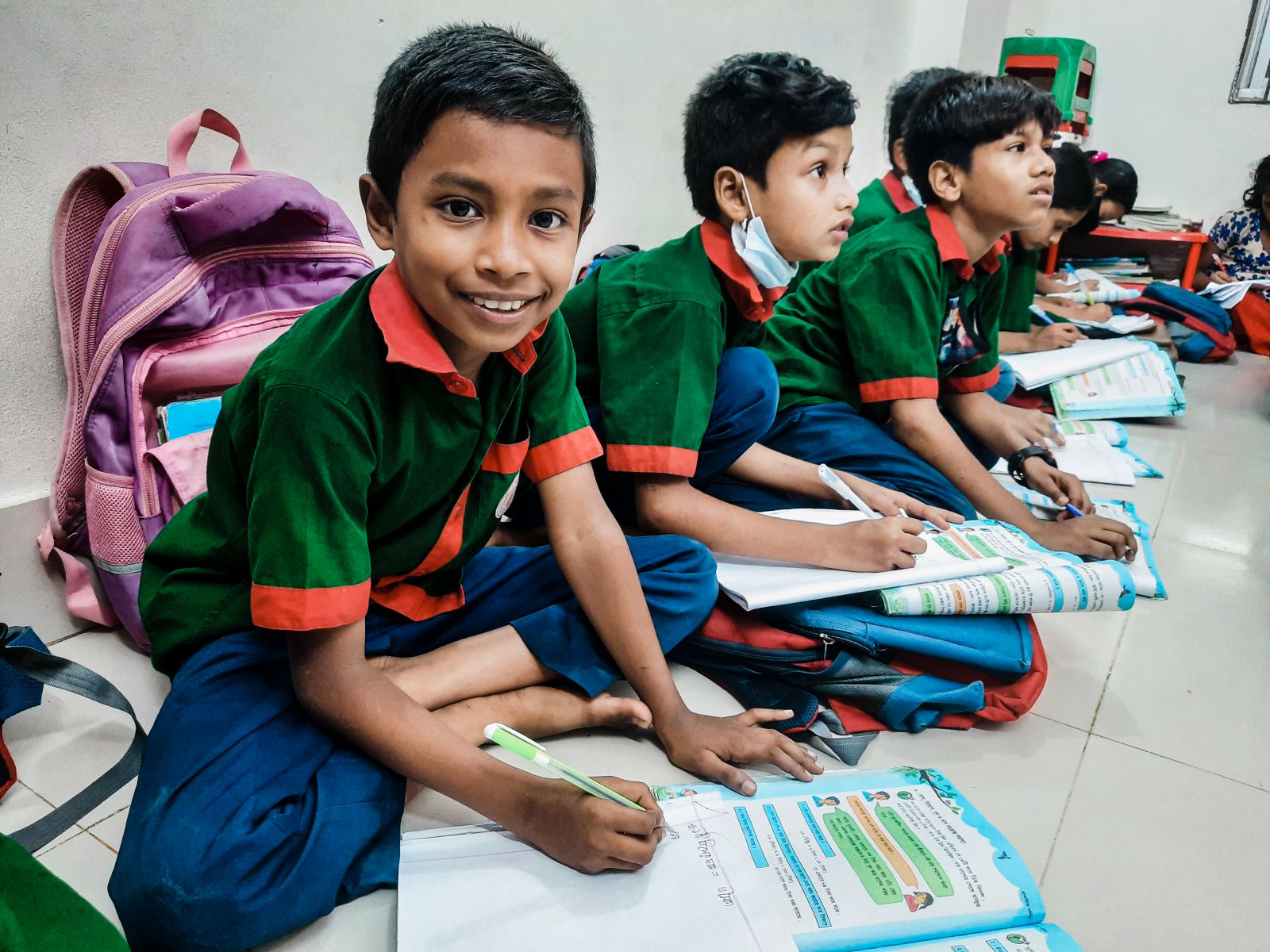
Provision of school supplies
Families living in poverty in the slums often cannot afford to provide their children with ordinary school supplies such as exercise books, textbooks, pencils, school bags or compulsory school uniforms. To ensure that the children at Chalantika have everything they need for education, once in a while they receive a packet of supplies thanks to our generous donors.
Nutritious lunches every school day
Every day children in Chalantika receive a nutritious hot meal. For the poorest families, even such a small item relieves the budget and the children are not hungry all day while learning. What is so commonly cooked here? The bases are rice and lentils, with a myriad of vegetables, traditionally spiced. Eggs, meat, and fish, which the kids love, provide plenty of protein, and they also get seasonal fruit - like lychee, melon, banana or mango - to spice up their diet. Vitamins, minerals and antioxidants are important for healthy development. Nutritious food contributes to overall mental and physical well-being, having more energy and a better mood. 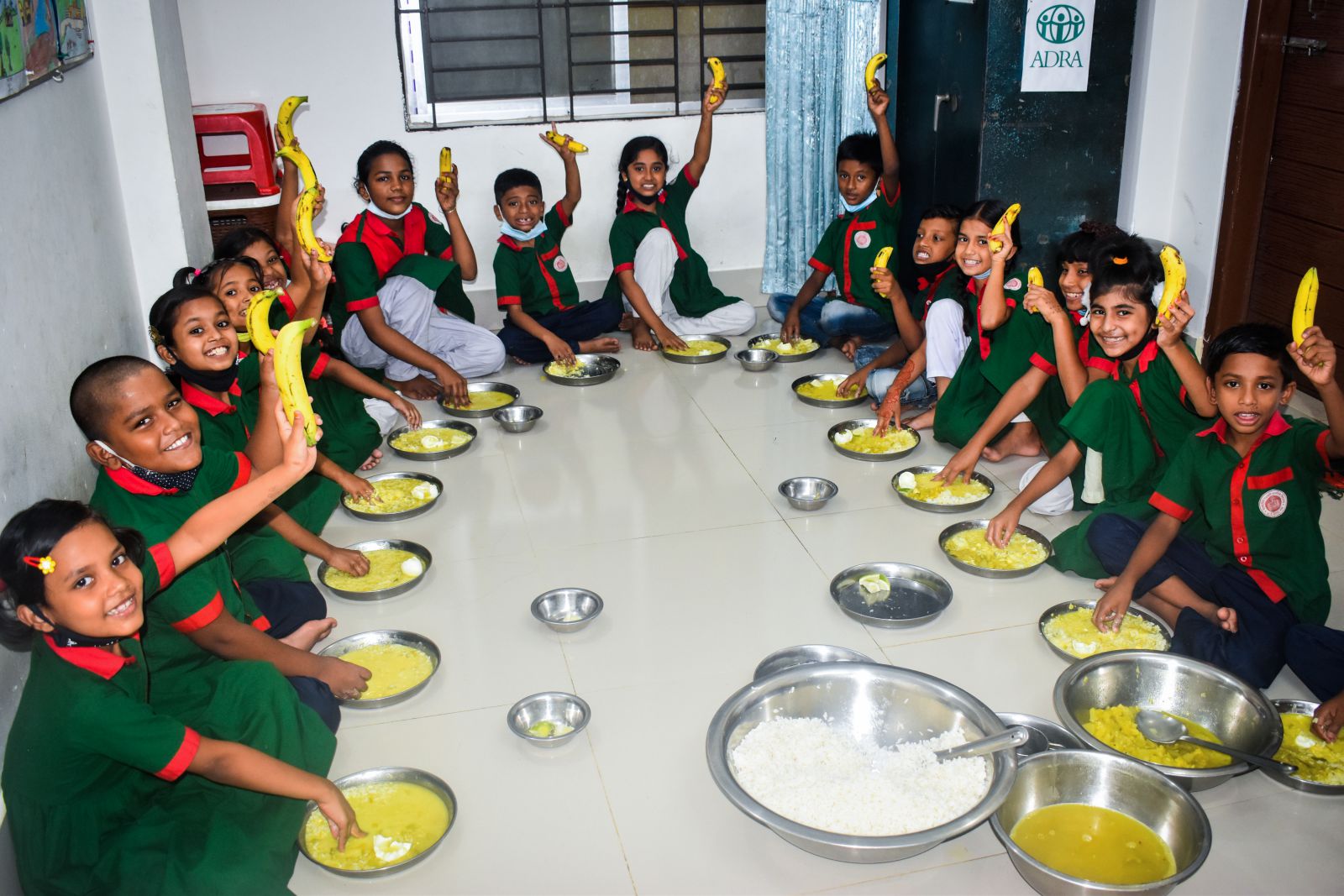
Preventive health checks and provision of medicines
Three times a year, children see a doctor and have a preventive health check-up. One routine, one dental and, this year, one special one aimed at detecting the blood groups of children. All this information is provided to the children's parents and also kept in the centre's database. In the event of an accident, for example, they can be very useful.
Every 4 months the growth of the children is monitored. We track their body mass index (BMI) and we can tell by their progress that most children's BMI is improving at least slightly during the course of their involvement in the project.
The centre also provides all children with medical care and medication as needed when they are sick.
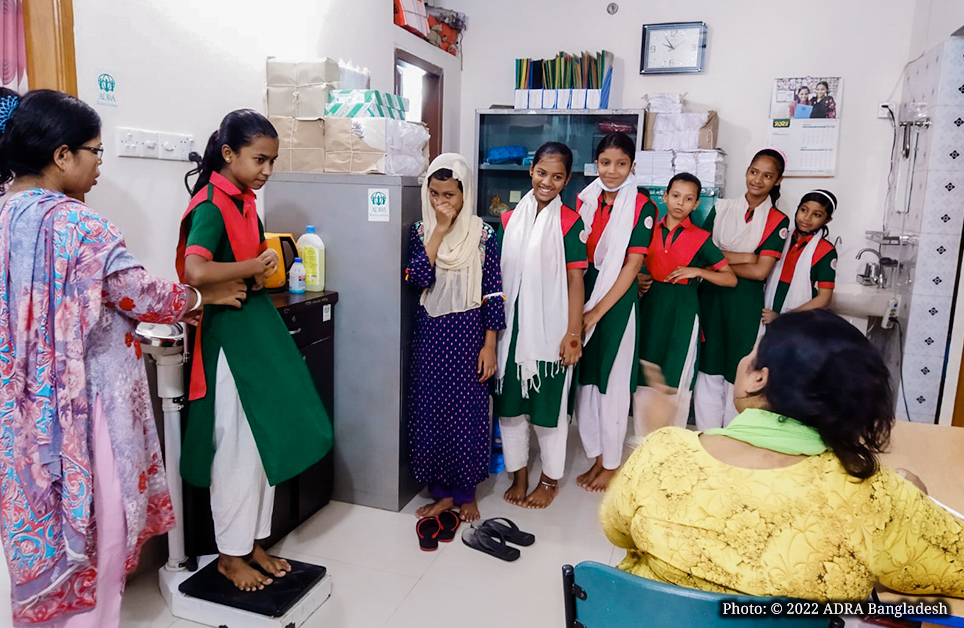
Awareness and prevention programmes
Each week, children attend a lesson focused on prevention and hygiene. They discuss important health and social topics.
This year, they learned about covid-19, varicella, Dengue fever, diarrhoea and cholera. The nurse who leads the classes discussed with the children how diseases spread, how to prevent them and what to do if they get sick despite taking precautions.
The children are also taught basic hygiene habits, which are not commonplace in the slum. Twelve-year-old Ibrahim says: "I learned how to wash my hands properly, bathe regularly and also wear shoes, for example, so I don't catch an infection. Unfortunately, there are more than enough germs in the slum."
Sumaiya and her family appreciate that she now knows how to get drinking water, "I didn't know that boiling water for a few minutes was enough to make it safe not only for bathing, but also for preparing food, and especially for drinking."
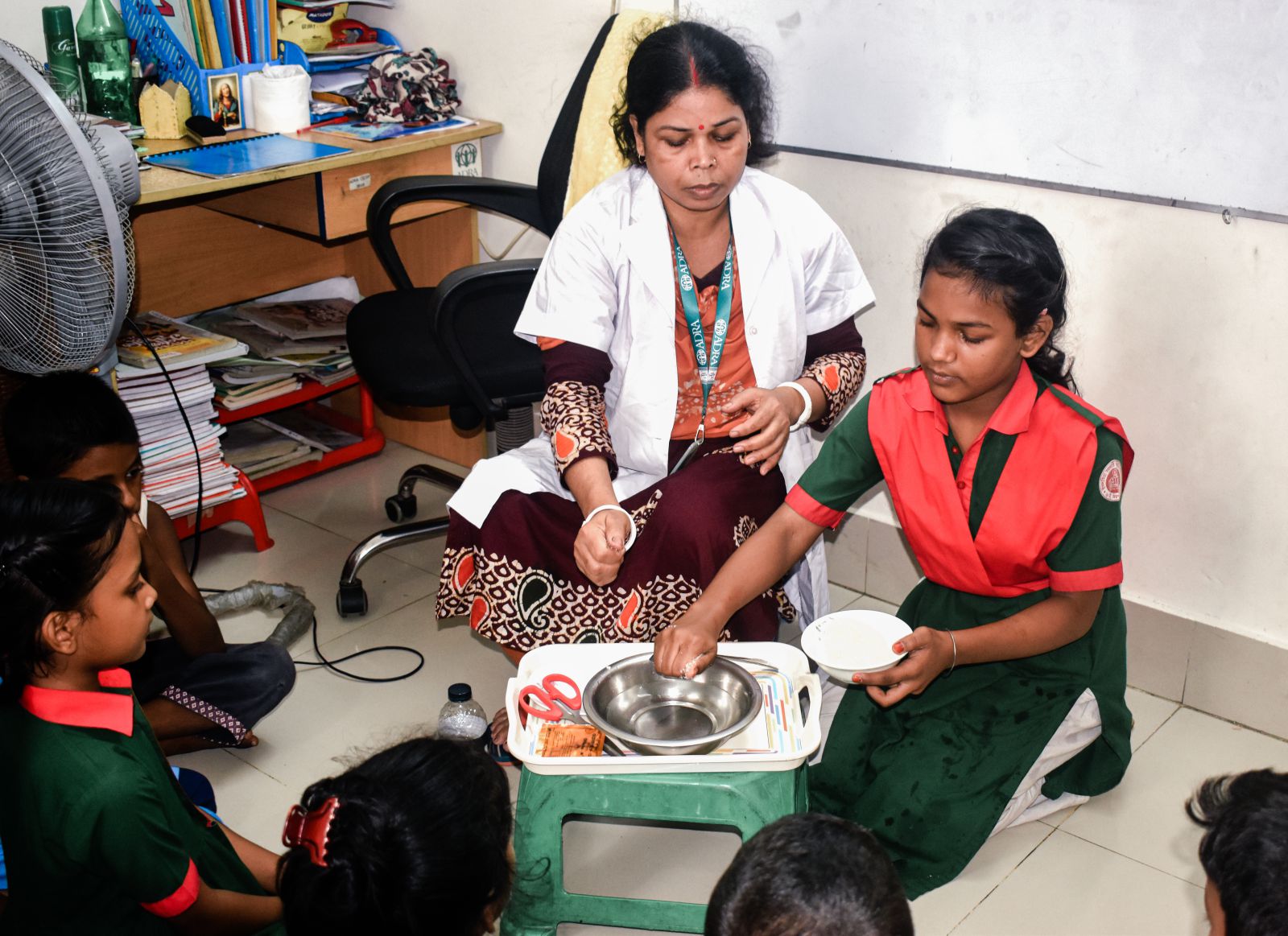
School trips
Slum children do not normally have the opportunity to spend time in an environment outside the slum. If they have some free time after completing their homework and helping their parents, they spend it at home, perhaps watching TV. Thanks to Chalantika, at least once in a while they get to go to places that inspire them, broaden their horizons and motivate them to learn.
Whether it's a visit to a business where they can pursue a future career, or an amusement park where they learn to cooperate with each other through play, and at the same time recharge their batteries for the hard days in the bleak slum environment.
Home visits - social accompaniment
Staff from our partner organisation ADRA Bangladesh - teachers and social workers - visit the needy families of supported children at least once a month to monitor their progress and look for room for improvement. Whether in the areas of learning, health, children's diet or hygiene habits. They also assess the suitability of the environment for their healthy development - in terms of housing and family situation.
Like the children, we also monitor the progress of the parents in the areas in which we educate them in our project (see Activities for Parents).
